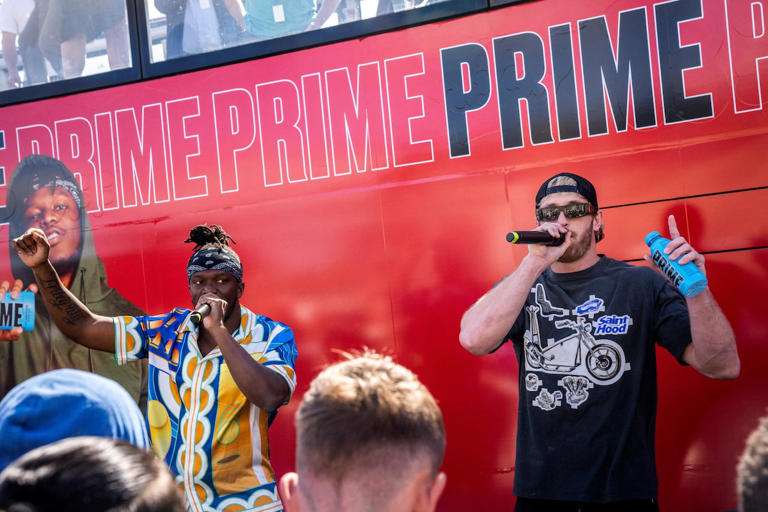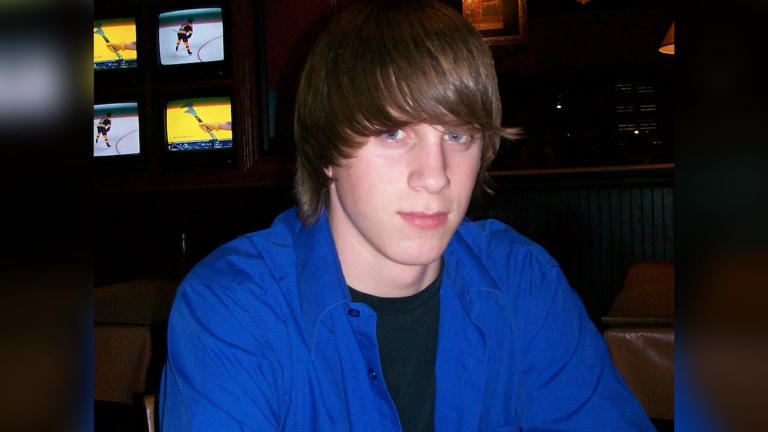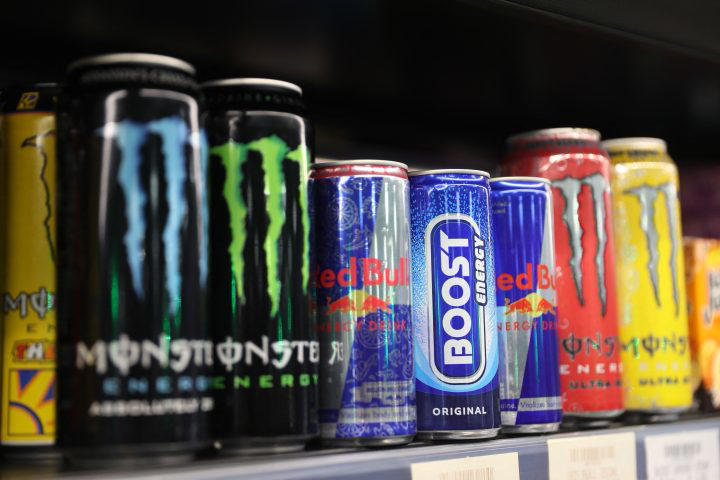Prime Energy drinks pulled from Canadian shelves — but how did they even get here?
Story by Jennifer La Grassa • CBC - Jul 12,2023
The recall of a highly caffeinated energy drink is raising questions about how the cans of Prime Energy that violated Canada's health regulations got onto store shelves in the first place.
The Canadian Food Inspection Agency (CFIA) said Tuesday it is recalling cans of Prime Energy that contain 200 milligrams of caffeine after CBC News reported they were being sold in stores in at least three provinces.
Health Canada's limit for such drinks is 180 milligrams of caffeine. Other brands of energy drinks are also part of the recall.
One food law expert says, most often, items that violate Canada's health regulations were exported by foreign manufacturers who don't know the rules.
"[They might be] unaware of the limits of caffeine or is unaware that certain food additives are not harmonized," between Canada and the U.S., for example, said Glenford Jameson, a lawyer and partner at G.S. Jameson & Co. in Toronto.
It would be up to a distributor to restrict the access, he says.

Social media influencers Logan Paul and KSI meet fans during a Prime promotional event in Copenhagen, Denmark, on June 27. (REUTERS)© Provided by cbc.ca
But with e-commerce, that can get tricky. Jameson says big online retailers have struggled to follow regulations, but that the industry has seen improvements in making sure products follow each country's standards.
Another common way is through a third country.
A manufacturer might sell its product into another territory, where a distributor or merchant ends up exporting it to Canada, without letting the manufacturer know.
"They've created this product, [it's] deemed not to be safe or at least not compliant in Canada, yet it's arriving here, and so then how do they manage that?" he said. "It's a really difficult problem."
CBC News purchased a 200-milligram can of Prime Energy at a store in Montreal on Wednesday. Workers there said it was imported from the U.S.
Prime said previously it "complies with federal regulations" in its markets but was unable to explain the presence of the drinks in Canada. The cans with 200 milligrams of caffeine are intended for the U.S. market. The company claims to have a Canadian version with 140 milligrams of caffeine.
Prime did not respond to a request for comment Wednesday about the recall notice.
'Difficult to police'
Jameson says, even though food and drinks are supposed to be regulated at the border, agencies often miss items.
"If you sort of picture the amount of goods that come into Canada on any given day, it's sort of difficult to police this sort of thing," he said.
While the CFIA establishes the rules for food, drink, plants and similar products coming to Canada, it's the Canada Border Services Agency (CBSA) that enforces those requirements before the goods are released into Canada, according to the CBSA.
The CFIA is "is often quite reactive," said Jameson.
"They don't spend a lot of time patrolling shelves or rifling through boxes at the border," for lower-risk products like Prime Energy, he said.

Food law expert Glenford Jameson says there are a number of ways items not eligible for sale in Canada can get into the country.
Story by Jennifer La Grassa • CBC - Jul 12,2023
The recall of a highly caffeinated energy drink is raising questions about how the cans of Prime Energy that violated Canada's health regulations got onto store shelves in the first place.
The Canadian Food Inspection Agency (CFIA) said Tuesday it is recalling cans of Prime Energy that contain 200 milligrams of caffeine after CBC News reported they were being sold in stores in at least three provinces.
Health Canada's limit for such drinks is 180 milligrams of caffeine. Other brands of energy drinks are also part of the recall.
One food law expert says, most often, items that violate Canada's health regulations were exported by foreign manufacturers who don't know the rules.
"[They might be] unaware of the limits of caffeine or is unaware that certain food additives are not harmonized," between Canada and the U.S., for example, said Glenford Jameson, a lawyer and partner at G.S. Jameson & Co. in Toronto.
It would be up to a distributor to restrict the access, he says.

Social media influencers Logan Paul and KSI meet fans during a Prime promotional event in Copenhagen, Denmark, on June 27. (REUTERS)© Provided by cbc.ca
But with e-commerce, that can get tricky. Jameson says big online retailers have struggled to follow regulations, but that the industry has seen improvements in making sure products follow each country's standards.
Another common way is through a third country.
A manufacturer might sell its product into another territory, where a distributor or merchant ends up exporting it to Canada, without letting the manufacturer know.
"They've created this product, [it's] deemed not to be safe or at least not compliant in Canada, yet it's arriving here, and so then how do they manage that?" he said. "It's a really difficult problem."
CBC News purchased a 200-milligram can of Prime Energy at a store in Montreal on Wednesday. Workers there said it was imported from the U.S.
Prime said previously it "complies with federal regulations" in its markets but was unable to explain the presence of the drinks in Canada. The cans with 200 milligrams of caffeine are intended for the U.S. market. The company claims to have a Canadian version with 140 milligrams of caffeine.
Prime did not respond to a request for comment Wednesday about the recall notice.
'Difficult to police'
Jameson says, even though food and drinks are supposed to be regulated at the border, agencies often miss items.
"If you sort of picture the amount of goods that come into Canada on any given day, it's sort of difficult to police this sort of thing," he said.
While the CFIA establishes the rules for food, drink, plants and similar products coming to Canada, it's the Canada Border Services Agency (CBSA) that enforces those requirements before the goods are released into Canada, according to the CBSA.
Related video: Logan Paul, KSI’s 'Prime Energy' drinks recalled in Canada over excess caffeine (Global News) Duration 2:04 View on Watch
The CFIA is "is often quite reactive," said Jameson.
"They don't spend a lot of time patrolling shelves or rifling through boxes at the border," for lower-risk products like Prime Energy, he said.

Food law expert Glenford Jameson says there are a number of ways items not eligible for sale in Canada can get into the country.
(Jennifer La Grassa/CBC)
Dr. Jane Shearer, a kinesiology professor at the University of Calgary, says caffeine shouldn't be under the CFIA purview because it's a drug.
"It's highly problematic," she said. "I think energy drink companies have been largely in charge here and the Canadian government needs to do more on getting a handle on what's in the market. This is not the first time we've seen products in the market that exceed Health Canada regulations."
Health Canada's recommended maximum caffeine intake for children up to age 18 is 2.5 milligrams per kilogram of body weight, per day.
For adults, it's no more than 400 milligrams.
Coffee can sometimes have more than 180 milligrams of caffeine in a single serving, and is not as strictly regulated. But experts say the concern with energy drinks is how they're marketed and whether it's to vulnerable demographics.
"It's framed as being fun, it's framed as being kind of trendy, it's framed as being healthy and it's framed also as optimizing your performance, when all it really is is water with caffeine in it," said Timothy Caulfield, Canada research chair in health law and policy at the University of Alberta.

Timothy Caulfield is the Canada Research Chair in Health Law and Policy at the University of Alberta. (David MacIntosh/CBC)
"So I think it makes sense [that] regulators watch products like this to ensure that their claims are justified."
Consumer safety advocate Jim Shepherd agrees that the branding and marketing of these drinks attracts a younger demographic who could be unaware of the health consequences.
That's why he wants Canada to ban the sale of all energy drinks to people under 18.
Shepherd, who lives in Toronto, believes that his son Brian's consumption of a caffeinated energy drink caused the 15-year-old's death in 2008.
An autopsy found that Brian experienced an acute arrhythmic event following a paintball match. The only drug in his system was caffeine, according to Shepherd.

Brian Shepherd died in 2008 when he was 15 years old. His dad says he collapsed after a paintball match.
Dr. Jane Shearer, a kinesiology professor at the University of Calgary, says caffeine shouldn't be under the CFIA purview because it's a drug.
"It's highly problematic," she said. "I think energy drink companies have been largely in charge here and the Canadian government needs to do more on getting a handle on what's in the market. This is not the first time we've seen products in the market that exceed Health Canada regulations."
Health Canada's recommended maximum caffeine intake for children up to age 18 is 2.5 milligrams per kilogram of body weight, per day.
For adults, it's no more than 400 milligrams.
Coffee can sometimes have more than 180 milligrams of caffeine in a single serving, and is not as strictly regulated. But experts say the concern with energy drinks is how they're marketed and whether it's to vulnerable demographics.
"It's framed as being fun, it's framed as being kind of trendy, it's framed as being healthy and it's framed also as optimizing your performance, when all it really is is water with caffeine in it," said Timothy Caulfield, Canada research chair in health law and policy at the University of Alberta.

Timothy Caulfield is the Canada Research Chair in Health Law and Policy at the University of Alberta. (David MacIntosh/CBC)
"So I think it makes sense [that] regulators watch products like this to ensure that their claims are justified."
Consumer safety advocate Jim Shepherd agrees that the branding and marketing of these drinks attracts a younger demographic who could be unaware of the health consequences.
That's why he wants Canada to ban the sale of all energy drinks to people under 18.
Shepherd, who lives in Toronto, believes that his son Brian's consumption of a caffeinated energy drink caused the 15-year-old's death in 2008.
An autopsy found that Brian experienced an acute arrhythmic event following a paintball match. The only drug in his system was caffeine, according to Shepherd.

Brian Shepherd died in 2008 when he was 15 years old. His dad says he collapsed after a paintball match.
(Submitted by Jim Shepherd)
It wasn't until months after Brian's death that Shepherd said he was told an energy drink company had attended the match and gave out samples of the drink, which his son consumed.
Since then, he's been advocating for better regulations.
"There's been some changes, but it's 100 per cent not enough," he said.
"They really haven't properly protected … youth and children. I really don't care if an adult drinks the drinks, as long as they're aware and I think that's the part that's key is most of them are not aware."
Over the years, research has shown that these sorts of drinks can have bad health effects on people. This review of recent research says that energy drinks can create anxiety, insomnia, irregular heart rhythms and sometimes death.
Shepherd says he wants to see the CFIA become more proactive and issue more penalties to bad players.
"Unless somebody complains about it if it's wrong, it's not going to get corrected," he said, adding that even when he's filed complaints he hasn't seen proper retribution.
Shepherd says he's been following the buzz created by Prime and knew it was a matter of time before it came to Canada.
"My major concern is with the kids," he said. "There isn't awareness from a lot of parents to know what the potential danger that these drinks are."
It wasn't until months after Brian's death that Shepherd said he was told an energy drink company had attended the match and gave out samples of the drink, which his son consumed.
Since then, he's been advocating for better regulations.
"There's been some changes, but it's 100 per cent not enough," he said.
"They really haven't properly protected … youth and children. I really don't care if an adult drinks the drinks, as long as they're aware and I think that's the part that's key is most of them are not aware."
Over the years, research has shown that these sorts of drinks can have bad health effects on people. This review of recent research says that energy drinks can create anxiety, insomnia, irregular heart rhythms and sometimes death.
Shepherd says he wants to see the CFIA become more proactive and issue more penalties to bad players.
"Unless somebody complains about it if it's wrong, it's not going to get corrected," he said, adding that even when he's filed complaints he hasn't seen proper retribution.
Shepherd says he's been following the buzz created by Prime and knew it was a matter of time before it came to Canada.
"My major concern is with the kids," he said. "There isn't awareness from a lot of parents to know what the potential danger that these drinks are."
Story by Sean Previl • Jul 14,2023

Energy drinks are pictured on shop shelves in London on August 30, 2018. Energy drinks are not recommended for those under 18, but they have become popular with youth. (Photo by Daniel LEAL / AFP)
As Canada recalls more energy drinks due to high levels of caffeine, pediatricians and health experts are raising concerns about the accessibility of the products and the impact they can have on youth.
Energy drinks are widespread across Canada, the U.S. and many other countries and can be purchased from corner stores and other retailers. While some have labels advising they are not recommended for those under the age of 18, the products are not controlled in the way alcohol or cannabis are.
The products' quick energy boost, however, can come with health issues, health experts say.
"It's a huge amount of caffeine for a child and a lot of caffeine for a teenager and someone may not just drink one drink," said Dr. Anna Banerji, associate professor of pediatrics at the University of Toronto and the School of Public Health.
"It's like them having six, seven, eight cups of coffee. And so they're energetic, yes, they're boosted (and) stimulated. But that's not sustainable."
She said that when people stop drinking energy drinks, potential withdrawal from caffeine includes sleeping issues, irritability, nervousness and anxiety.
Logan Paul, KSI’s ‘Prime Energy’ drinks recalled in Canada over excess caffeine
According to HealthLink BC, energy drinks can come with side effects such as headaches, nausea, fast or irregular heartbeat or insomnia.
Banerji added that the beverages often have a large amount of sugar in addition to caffeine and therefore may have little nutritional value and empty calories.
The contents of energy drinks range depending on the brand. A Red Bull or Monster, for example, has between 80-160 milligrams of caffeine in a serving, which could be comparable to a cup of coffee brewed at home that would have approximately 120 to 180 mg.
Some energy drinks have been found to contain 300 mg of caffeine or more.
In the U.S., it's advised by the Food and Drug Administration that an adult can consume about 400 mg of caffeine a day. The FDA does not have a recommended limit for those under 18, but the American Academy of Pediatrics advises against caffeine consumption by the age group altogether.
Health Canada advises children and adolescents under 18 should keep caffeine intake to 2.5 mg per kilogram of body weight per day. As an example, an average 16-year-old male weighing 60 kilograms, or 132 lbs, should consume no more than about 150 mg of caffeine per day.
In a statement to Global News, a spokesperson for Health Canada said that its Food and Drug Regulations were amended in July 2022 to include a "new framework for the sale of supplemented foods," such as energy drinks. As part of it, concentrations of added caffeine must be between 150 and 400 mg per litre, not exceeding 180 mg per serving. In addition, energy drinks are required to carry a "cautionary label statement indicating that these beverages are not reecommended for those under 14 years old, pregnant or breastfeeding women or individuals sensitive to caffeine."
The agency said supplemented foods on the market with a "Temporary Marketing Authorization" or had submitted an application for one before July 21, 2022 and received Health Canada approval, had until Jan. 1, 2026 to comply. New supplemented foods are required to comply "immediately."
Dr. Jean-Philippe Chaput, a senior scientist with the Healthy Active Living and Obesity research group at the Children's Hospital of Eastern Ontario (CHEO), said that while youth should focus on drinking healthy beverages such as water, youth often turn to caffeine and energy to stay alert through the day.
According to the 2016 ParticipAction Report Card on Physical Activity for Children and Youth, almost a third of school-aged Canadians are not getting enough sleep.
"We have a sleep deprivation epidemic in Canada and one way to cope with lack of sleep is maybe to have a stimulant like Red Bull or energy drinks," Chaput said.
He recommends a mix of education and new policies to form the solution. Parents as well as schools and health-care providers should also discuss proper sleep habits and avoidance of energy drinks.
"Everyone should sing from the same song sheet saying that energy drinks are not good for you," he said.
Video: Monster Energy recalls one of its energy drinks
In terms of policies, Chaput said one option would be to look into further restricting the amount of caffeine in these beverages.
Putting in policies surrounding energy drinks may be difficult, Banerji suggested, as it's not like restricting items with carcinogens like tobacco. She also takes issue with how energy drinks are marketed.
"Even though they say it's for people who are adults, it really is marketed for the youth," she said, noting the loud logos and brightly coloured packaging common among the products.
Marvin Ryder, an associate professor of marketing at McMaster University's DeGroote School of Business, said social media has become a benefit to energy drink makers without them even having to do promotions on the platforms.
Seeing someone, such as a close friend or an "influencer," post on social media consuming an energy drink can have a greater impact than a promotional video posted by the company.
"To younger people, those social media posts, not formal advertising from the company, but simply peer-to-peer communication – me telling you that I have one of these before I go to the gym or I had one of these before the game, or I had one of these to get ready for a test – carries so much weight," he said.
Video: Kids and youth should avoid sports and energy drinks, Canadian Paediatric Society warns
Ryder said it's unlikely much will change without potential government intervention, which could come in a variety of ways. He suggests making warning labels bigger or removing colours and logos, or potentially changing how the products can be sold.
Recently, Canada recalled six brands of energy drinks including Logan Paul and KSI's Prime Energy, and the well-known 5 Hour Energy over concerns of caffeine exceeding the allowable 180 mg amount in Canada, as well as labelling issues.
Ryder said it's important such rules are enforced.
"When a product is improperly imported into the country and violates the rules, you must pull it off the shelves and destroy the product," he said. "You can't have any product of any kind on our shelves that violate our rules."
No comments:
Post a Comment